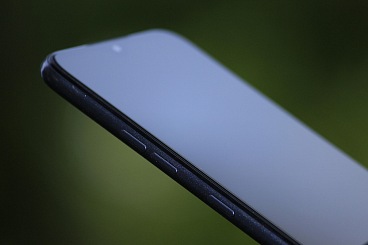The allergy season is far from over in the summer. It eases from the worst, but quite significant allergens appear
With the arrival of summer, allergic rhinitis largely subsides, but this may not be entirely true. The disappointment that we suffer from hay, pollen, and freshly mowed lawn can burden us and spoil our summer comfort. How to defend ourselves?
The allergy season ends in mid-holiday
The official period when the main allergy season ends, begins around the end of July. But unfortunately, some irritating types of pollen appear until September.
Pollen from weeds can irritate until the end of October. Their season starts in the summer, and they include: wormwood and ragweed, or possibly nettles, dock or sorrel.
The pollen season of grasses is undoubtedly the most significant. As up to 50% of patients with pollen allergies have problems with grasses. The grass season starts roughly in May and lasts until July, for some types even until September. In addition to grasses, it also includes grain allergens (mainly rye).
The pollen calendar is listed on the website benu.cz
Grass allergy symptoms are similar to common spring allergies, which leads to the disappointment of allergy sufferers who believe that everything ends with spring. But eye itching, watery rhinitis, a stuffy nose and smell disorders are then triggered by grasses, and later also by weed pollens. Also common is throat itching, shortness of breath, nose itching. These symptoms are sometimes found even in healthy individuals in June, July, just before the first mowing of meadows, or just after them, when grass pollens are most dispersed in the air and their large amounts are a burden even for non-allergic individuals.
Some people react to these pollens also with overall fatigue, a feeling of weakness, headaches or eczema, says the website bez-alergie.cz.
Allergenic weeds thrive from August to September
Pollen calendar lists the most common allergens in this period. You might not expect some typical summer plants as pollen allergens, like chamomile or sunflower.
Furthermore, it's home to the cream of doctors, roughly from July, the aspen physician, sorrel acid, white cowslip, imposed oat, yarrow, plantain spear, forest mallow. From trees then bird beak common, early summer still controls the lime heart and then already dominate grasses in the period until the autumn.
How to deal with summer allergies? We only suppress symptoms, the problem remains
Acute allergic reactions can be best managed with commonly available antihistamines. Tablets, nasal sprays or eye drops alleviate symptoms. But they do not treat the allergic reaction. There are increasingly modern antihistamines on the market, which do not cause fatigue, which is a common side effect of these drugs.
As much as possible, try to avoid pollen allergens, some websites, such as pyly.cz have an up-to-date pollen calendar of active allergens. Generally, the worst pollen situation tends to occur during sunny, dry, and windy weather when allergics should avoid excessive activity in such environment if possible, and maybe even limit ventilation and wash their hair more often, as allergens settle on it.
During the time just after the rain, during rain, and in a calm, humid climate, the situation is the calmest and it is a suitable time for an allergic person for sports or higher physical strain.
Immunotherapy helps for a longer period
Visit an allergist and consider therapy, in which a weakened causative allergen is administered to your body, the immune system gets used to it and stops reacting so violently to it. This gradually leads to the alleviation or disappearance of allergic symptoms.
The allergen is applied by injection at regular intervals, once every few weeks, with the treatment lasting 3 - 5 years, with the effect of the treatment being noticeable as early as the first year. So it's a long-term affair, but in the overall perspective, it pays off because you get rid of one very negative factor weakening your health.
The second method is to administer this allergen in the form of soluble tablets or drops under the tongue, thanks to this method you save visits to the doctor, however, the same effect as with injection therapy is still maintained.
The sooner this therapy begins, the greater its chances of success. Of course, it is preceded by special tests in the allergology office. For grass allergies, it is appropriate to start therapy in the autumn, before the pollen season, so that the body has time to ideally process the first doses of allergen.
Immunotherapy is good asthma prevention
This treatment is also a good prevention of the development of asthma in later age, which is a good step if you have this burden in your family. Children significantly reduce the risk of suffering from asthma in adulthood.
You can also have an allergy test as a self-payer, it is more extensive, includes food allergies and the results can be consulted with a doctor. At each collection station, they can provide you with information about other suitable tests for self-payers. You will thus save time spent at the doctor's. Then you can set up the correct treatment and regimen.
Pollen allergies do not leave us even in the summer and it is good to count on them, knowing that on a sunny windy day by a freshly mowed meadow it will not be completely comfortable and it is also appropriate to consider more permanent long-term solutions, the right time for them is coming in a few weeks, in the autumn.
Sources: bez-alergie.cz, benu.cz, pyly.cz,eshop-synlab.cz, euc.cz, author's text











